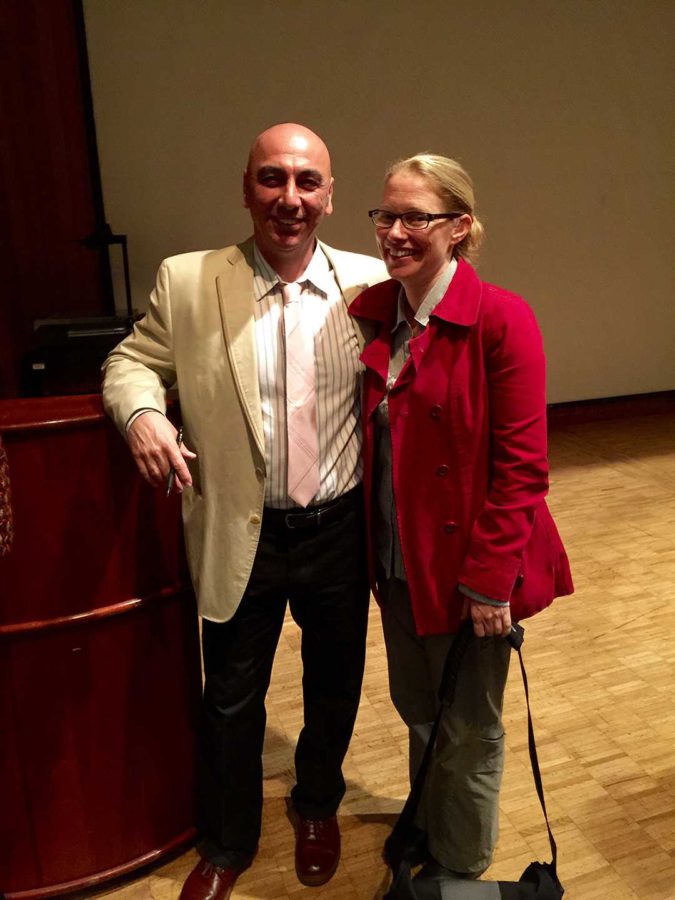Movies affect people in a global sense; it’s not a Hollywood phenomenon. “The purpose of [cinema] art is to communicate in humanistic terms a sense of well-being,” said Santa Rosa Junior College media studies instructor Dr. Tony Kashani.
More than 125 students and attendees gathered Feb. 22 in Newman Auditorium to hear Kashani discuss his book, “Movies Change Lives,” and how film is essential in today’s modern world.
“Art is a means of union, joining men and women together in the same way during a cinematic experience and is indispensable for the progress of life,” Kashani said in his opening statement.
He elaborated on four principles of a cinematic encounter, explaining what the viewer may experience: suspension of disbelief, projection and identification, public cultivation and reaction to the stimuli. Kashani quotes American art critic essayist Susan Sontag as saying, “Art is a form of consciousness.”
During the demonstration, Kashani showcased how “Movies Change Lives” is an accurate, detailed explanation of how cinema can create social transformation. He molded the theory of humanistic transformation by discussing movies like “Syriana,” a 2005 politically-charged film about the state of the oil industry and how people are personally affected by it.
“I thought it was an excellent presentation with great examples of powerful films,” said SRJC student Will Agee. “I connected most with the discussion about the movie ‘Syriana’ and how it is more relevant today than when it was first created in 2005. The lessons of these types of films are powerful.”
Kashani believes movies teach mechanisms that affect people emotionally, physically and philosophically. “Every single one of us here today who has watched a film has been affected in one way or another by it,” he said. “Watching movies can change how we view the world.”
As Kashani illustrated the details of his book, his vision of how movies change lives captivated attendees. “The analysis changed my thinking about how to develop a movie,” said attendee Peter Kip Mercure. “It added important ideas that have affected my approach to the cinema and my own efforts.”


